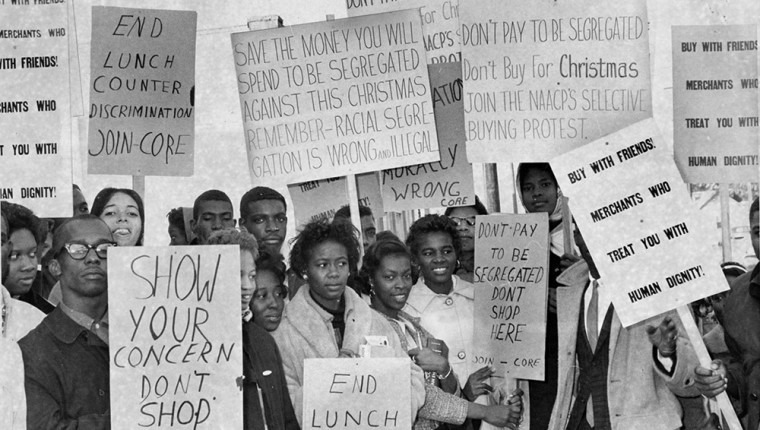A Conversation with Elizabeth Gelman and Erin Blankenship of the Florida Holocaust Museum
The Florida Holocaust Museum in downtown St. Petersburg has responded to the Coronavirus pandemic by exhibiting art and artifacts both online and on their exterior walls. Because 2020 wasn’t their first foray into the virtual space, Executive Director Elizabeth Gelman and Director of Collections & Interpretation Erin Blankenship faced only minor setbacks in programming with the temporary closing of the museum.
They’ve organized a virtual exhibition on the Civil Rights movement and an outdoor art exhibit, despite the pandemic, and they plan to continue to come up with creative ways to teach the lessons of the Holocaust.
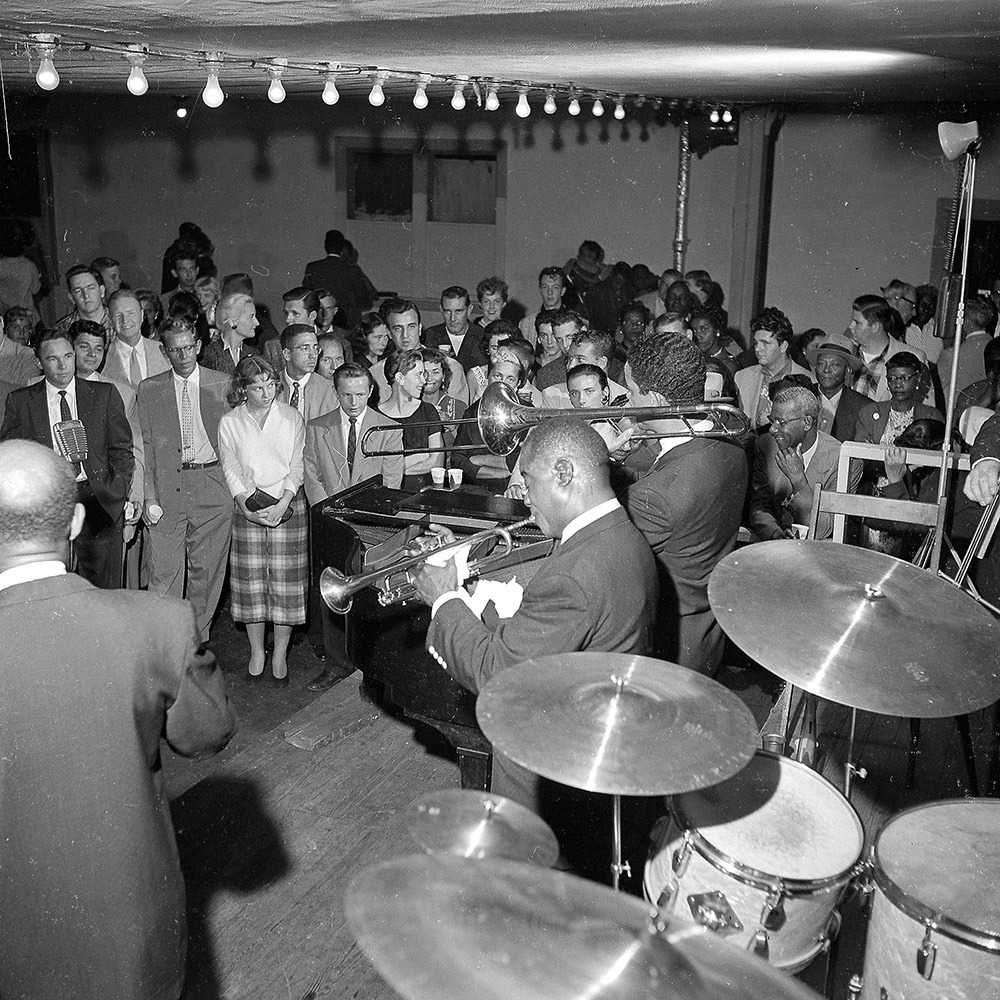
Elizabeth Gelman: We’ve launched a new virtual exhibition titled, Beaches, Benches and Boycotts, the Civil Rights Movement in St. Petersburg, Tampa and Sarasota. It’s based on the very popular exhibition that was in the museum gallery last year.
We were already walking in the virtual space before the Coronavirus hit. We have a contract with the Florida Department of Education to train teachers and bring resources to students throughout the State so we weren’t starting from zero. We did do a complete pivot to online education so that we could better serve some of our most important constituents and stakeholders, which are the students, parents and teachers who are also struggling to make sense of how to learn in this new environment.
So much of what we show in the galleries has a path to it. You’re learning information and then, when you make sense of that information, you go to the next stop on the tour, and so on.
It’s not like an art museum where if there are too many people standing around a certain painting, that you might move on to another painting. You walk into our museum, and you start learning about anti-Semitism – and more people come in and it gets too crowded so you move around them, and suddenly you’re in the Warsaw Ghetto.
The museum was created so thoughtfully in how you walk through and learn the story. It’s very intimate, and has very narrow hallways – which is perfect to tell the story of the Holocaust, but not during times of the Coronavirus.
Erin Blankenship: For about a year, we’ve been working on a virtual tour with the USF Library, and we were very close to wrapping up the planning for that right before the Coronavirus. So when the museum closed, we were able to get that up and running very quickly.
Same thing for the collection. We had already begun a project of digitizing a lot of the objects in our collection and we were in the review phase of putting an online database of our collection together. Within a few weeks of closing the museum we were able to make that database available for the public.
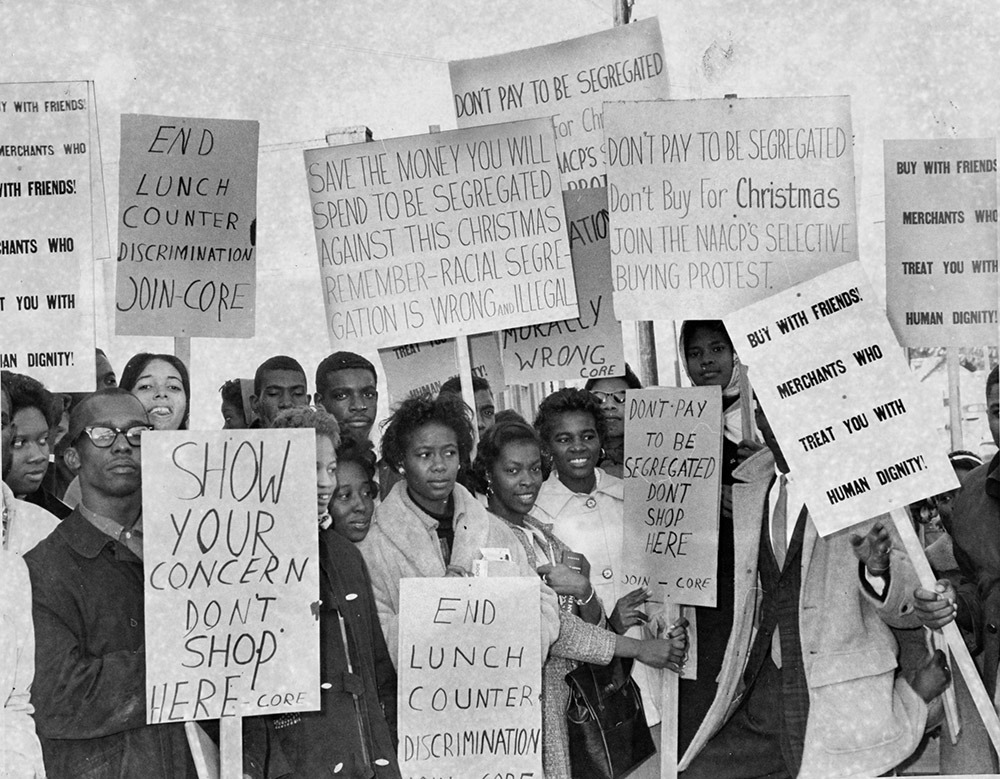
TW: Can you please describe your collaboration with the USF Institute for Digital Exploration? It’s amazing because you can view 3-D models of artifacts in the collection on the Florida Holocaust Museum website.
EB: We’re so lucky to partner with them. We knew of 3-D scanning, so we reached out to them, and they were very enthusiastic about scanning our collection. At first, they were scanning only objects in our permanent exhibition. Now, they’re also digitizing the objects from Beaches, Benches and Boycotts.
TW: To me, the Florida Holocaust Museum shows a dedication to collecting and exhibiting art.
EG: The museum uses many portals to teach about the Holocaust, and the visual arts component is integral to what we do. We always have an element of the visual arts on view in order to give our visitors the opportunity to reflect on what they’ve experienced in our permanent exhibition.
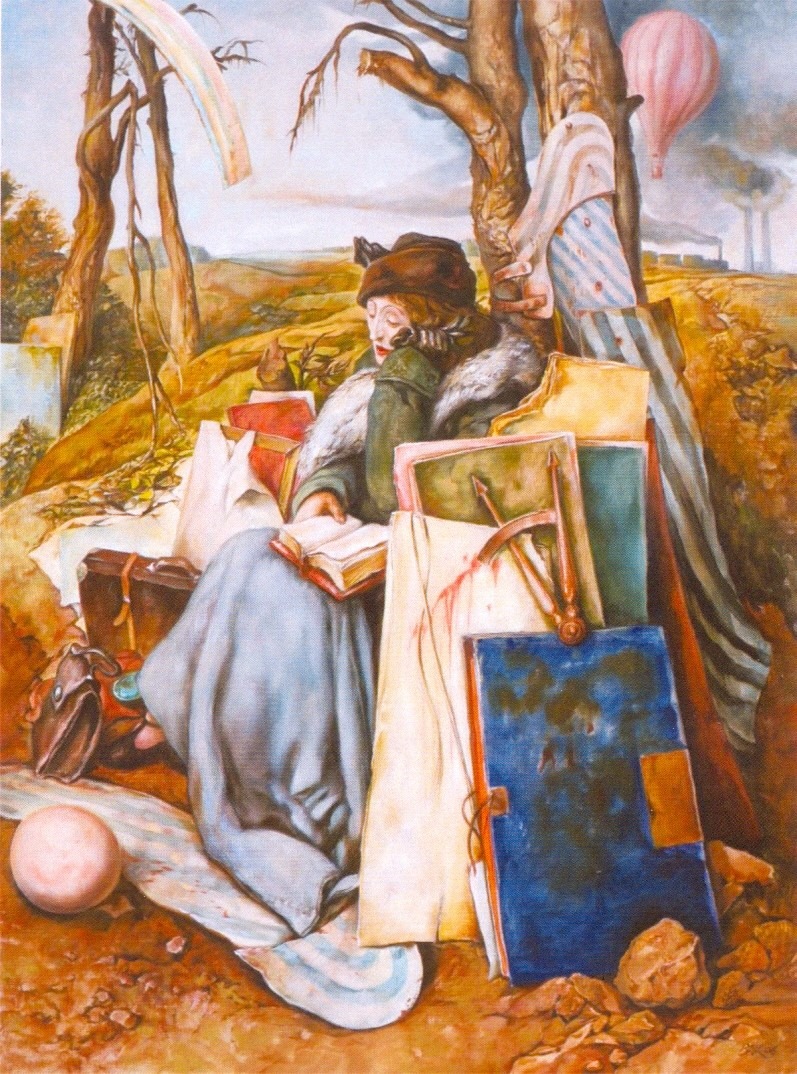
And not everyone learns the same way so it’s important to give people different portals into understanding. We’ve done plays, musical performances, dances and exhibited artwork created by Survivors as well as contemporary artworks.
EB: The museum has been growing its visual art collection for several years, both two-dimensional and sculptural pieces. The leadership has put an emphasis on using art to teach the lessons of the Holocaust.
We recognize that some people learn through creative and emotional outlets, and art is certainly something that can make those connections. Whereas maybe a journalistic, black-and-white photo may not do that for some children and adults. It just gives us another way to think about all the different lessons and stories of the Holocaust.
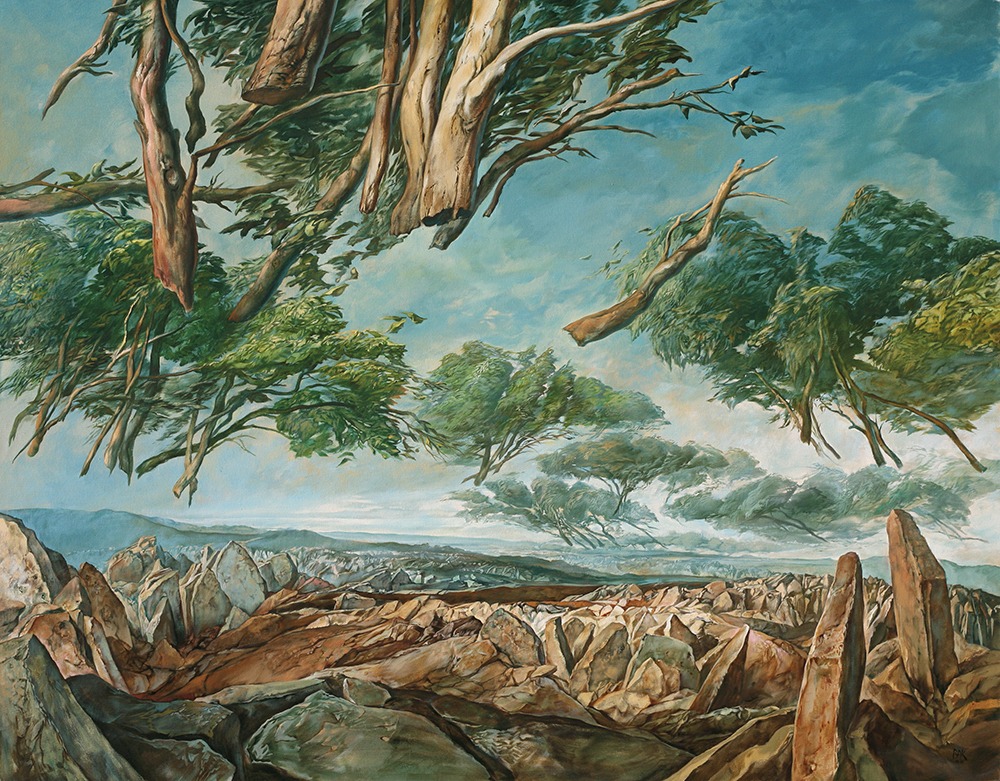
EG: We’re also currently creating an outdoor art exhibit featuring paintings by Samuel Bak that are part of the museum’s collection. Having it outdoors gives people a safe place to come and visit and learn.
EB: In addition to virtual exhibitions, we wanted a physical presence for our museum while we’re still closed. We printed seven paintings and drawings from Samuel Bak on banners that we plan to hang outside on Central Avenue. The exhibition is titled, Beautiful Questions: The Art of Samuel Bak.
He always called himself a ‘painter of questions.’ We’ve used his artworks to pose questions to the viewers, to think about their own lives and to think about their own experiences with the Holocaust, or the experience of learning about it. The art also asks the viewers to think about other people, and what we’re going through, today. It’s just another way of delivering our mission.
Until now, our exhibitions during the pandemic have featured our artifacts. This is the first time since we’ve closed that we’ll be using our art collection to deliver our mission.
EG: This is such a challenging time – for our community, for the world – and we’re all marching through it. But we all need moments when we can just reflect. And stop. And breathe. I see Beautiful Questions as our gift to the community. You don’t need a computer. It’s free.
And we’d like to hear from people. We’d love to have more feedback on our offerings. We’d love to hear how we can help our community heal.
It is a challenging, and frightening, and very exciting time – I keep referring to it as ‘the year of adventure’ to my board. I think it’s important for us to focus on what silver linings we can find because that’s what will keep us moving forward.
